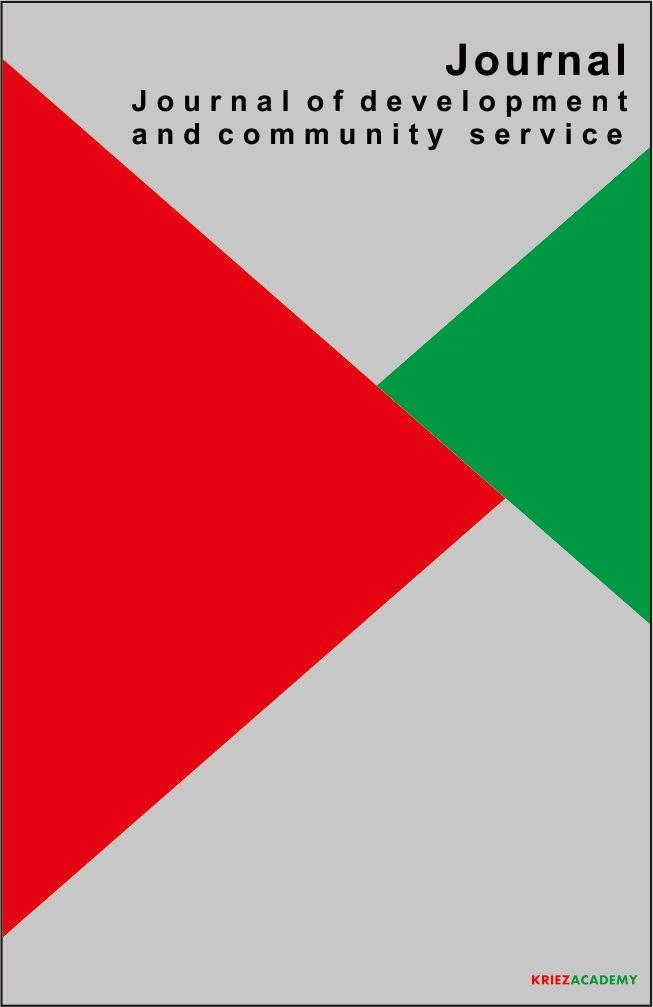EXAMINING THE IMPACT OF ARTIFICIAL INTELLIGENCE ON AUTOMATION AND EFFICIENCY IN MANUFACTURING SYSTEMS
Keywords:
Artificial Intelligence, Manufacturing Systems, Predictive Maintenance, Robotics, Supply Chain OptimizationAbstract
Background:
The integration of Artificial Intelligence (AI) in manufacturing systems has revolutionized the way industries operate, offering significant improvements in automation, efficiency, and quality control. As manufacturing processes become increasingly complex, AI technologies such as machine learning, robotics, and computer vision have enabled manufacturers to streamline operations, reduce costs, and enhance productivity.
Aims:
The primary aim of this research is to examine the role of AI in enhancing operational efficiency and productivity within manufacturing environments. Specifically, the study seeks to evaluate the impact of AI on key areas such as predictive maintenance, robotics in production, quality control systems, and supply chain management. Additionally, it aims to assess the implications of AI on workforce dynamics and identify the benefits and challenges manufacturers face when implementing AI technologies. By doing so, the research intends to provide valuable insights into how AI adoption can drive sustainable growth and competitiveness in the manufacturing sector.
Research Method:
This study employs a mixed-methods approach, combining both qualitative and quantitative research methods to gain a comprehensive understanding of AI's impact on manufacturing. The qualitative component involves in-depth interviews with industry professionals, AI experts, and managers in manufacturing companies that have adopted AI technologies. The quantitative aspect consists of surveys distributed to manufacturing professionals to gather data on AI applications and their effectiveness.
Results and Conclusion:
The results of the study demonstrate that AI significantly enhances operational efficiency across various dimensions of manufacturing systems. Key benefits include reduced downtime through predictive maintenance, improved production speed and accuracy with robotics, enhanced product quality through AI-powered quality control systems, and optimized supply chain management. The integration of AI has also transformed the workforce, requiring reskilling and upskilling of employees. Despite challenges such as high initial costs, data integration issues, and concerns about workforce displacement, the study concludes that the long-term advantages of AI adoption outweigh these obstacles. Manufacturers that embrace AI technologies gain a competitive edge in the market by improving productivity, reducing operational costs, and enhancing the flexibility of their operations.
Contribution:
This research contributes to the existing body of knowledge by providing a detailed analysis of AI's role in modern manufacturing systems. The study not only highlights the technical and operational advantages of AI but also addresses the social implications, particularly in terms of workforce adaptation and skill development. By examining case studies and gathering insights from industry professionals, the research offers practical recommendations for manufacturers considering AI adoption. The findings can guide decision-makers in optimizing AI integration, ensuring that they realize both immediate and long-term benefits while mitigating potential challenges.
Downloads
References
Ajayi, A. O., Tochukwu, M. F. C., & Emmanuel, A. (2025). Design and optimization of renewable energy-powered automation transformer coil winding machines. ResearchGate.
Bikka, S. P. (2025). Hyperautomation: Transforming cloud-based workflow automation through AI integration. International Journal of Computer.
Ebule, A. E. (2025). Leveraging artificial intelligence in business intelligence systems for predictive analytics. International Journal of Scientific Research.
Ghosh, S., & Podder, A. (2025). Opportunities and challenges of artificial intelligence (AI) in the banking and finance sector. Books on Shaping Cutting-Edge AI. Google Books
Hoque, A., Mazumder, A. S., & Roy, S. (2025). Transformative approaches to agricultural sustainability: Automation, smart greenhouses, and AI. ResearchGate.
Igwe, A. N., & Eyo-Udo, N. L. (2025). The impact of fourth industrial revolution (4IR) technologies on food pricing and inflation. ResearchGate.
Imane, S. A., & Abdelkbir, E. (2025). Artificial intelligence and financial auditing in Morocco: Towards a redefinition of practices and skills. African Scientific Journal.
Jackson, D. H. (2025). Generative artificial intelligence (GenAI) impacts on workplace communication and organizational change. Minds of Wisconsin.
James, A., Nicole, H., & Patel, B. (2025). Vertical network slicing: A game changer for 5G data traffic optimization and performance. ResearchGate.
Kumari, B. (2025). Innovative cloud architectures: Revolutionizing enterprise operations through AI integration. ResearchGate.
Lari, S. (2025). AI-assisted ultrasound-guided high-intensity focused ultrasound (USgHIFU) in non-invasive surgery. University of Waterloo Repository.
Leiva-Araos, A., Contreras, C., & Kaushal, H. (2025). Predictive optimization of patient no-show management in primary healthcare. Journal of Medical Systems.
Liò, P., Parmar, J., & Banerjee, S. (2025). A framework for generating counterfactual explanations to explain black-box models. Preprints.
Mirindi, D., Khang, A., & Mirindi, F. (2025). Artificial intelligence (AI) and automation for driving green transportation systems. Springer Book Series.
Nosheen, M., Irfan, S., & Ameer, N. (2025). Technological advancements and their impact on productivity: Benefits, challenges, and strategic implications. Journal for Current Sign.
Özkök, G. A., & Aycan, H. H. (2025). Innovation in kitchens: Evaluation of artificial intelligence applications. Culinary Crossroads.
Ponte, S., & Farina, A. (2025). Conceptual, functional, and operational interactions of ATC radars and navigation systems. IEEE Proceedings.
Sharma, S., & Dutta, N. (2025). Design and development of project risk management system using Industry 4.0 technology and its practical implications. ResearchGate.
Sharma, S., & Dutta, N. (2025). Practical implications and development of project risk management framework based on Industry 4.0 technologies. ResearchGate.
Vafaeinejad, A., & Alimohammadi, N. (2025). Super-resolution AI-based approach for extracting agricultural cadastral maps. IEEE Journal.

Downloads
Published
Issue
Section
License
Copyright (c) 2024 Mohamad Ruli Fahmi (Author)

This work is licensed under a Creative Commons Attribution-ShareAlike 4.0 International License.












